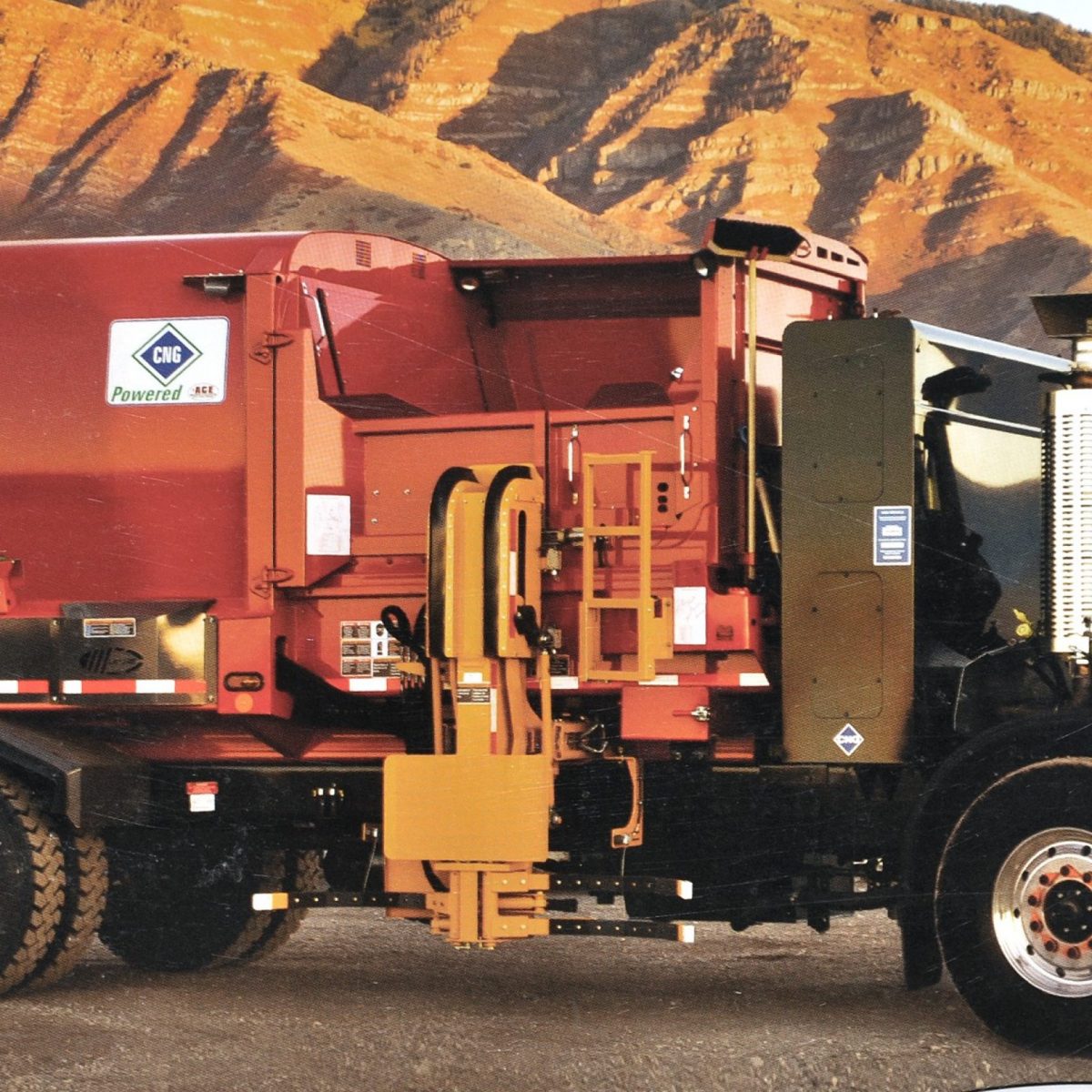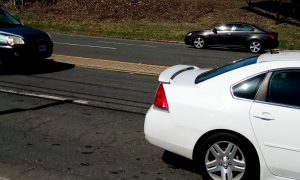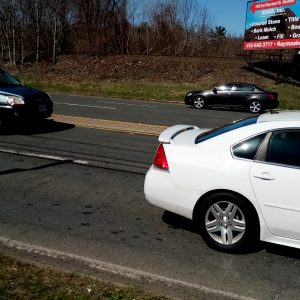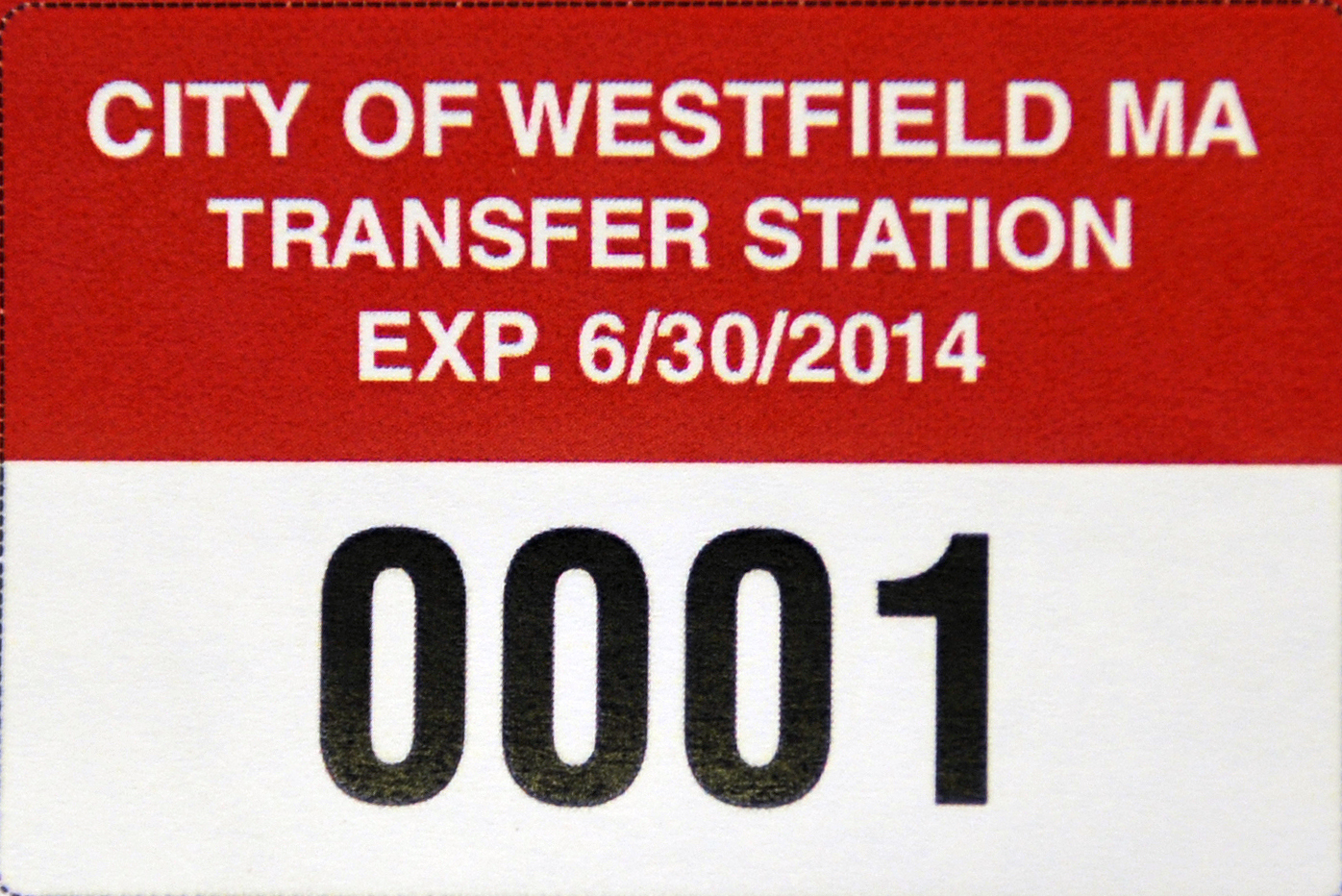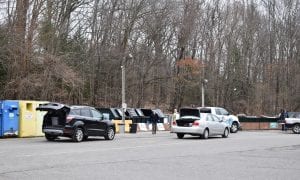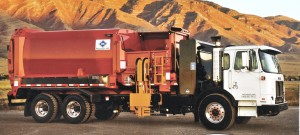
The Westfield Department of Public Works will soon take delivery of a new $265,000 solid waste truck. The first of three trash trucks is scheduled to arrive sometime next week. (Photo reproduced by chief photographer Frederick Gore)
WESTFIELD – Residents will see the next generation of the city’s solid waste fleet Monday as a new generation recycling truck is brought into service.
Public Works Superintendent James Mulvenna said that the new recycling truck is just the beginning of the city’s plan to update its aging solid waste fleet of recycling and refuse vehicles
“We got the recycling truck Tuesday and that will be out of the routes (Monday),” Mulvenna said. “We will also take delivery of a refuse truck within the next two weeks as we begin to replace the fleet of 1995 and 1998 trucks.”
The City Council is currently reviewing an $111,059 funding request submitted by Mayor Daniel M. Knapik to acquire two more refuse trucks through a five-year lease-to-own contract.
“The refuse trucks cost $265,000 a piece,” Mulvenna said. “The interest rates are really, really low so it makes sense to do it this way, which is not the first time we’ve gone this route.”
Mulvenna said the new refuse trucks have articulated arm and video camera technology to enable the operator to load the trash barrels without ever getting out of the truck cab.
“I’ve talked to people in communities that have these trucks and they say the collection goes a lot faster, so we’ll be able to get by with three trash trucks rather than the five we have doing the routes now,” he said.
The city also has three recycling trucks in service, two to collect cans, bottles and plastic,and one truck collecting paper and cardboard.
“The new recycling truck, which will be on the road Monday, has two compartments, so it can do both kinds of recycling at the same time,” Mulvenna said. “It also has an articulated arm for loading barrels.”
The city is assessing going to a “single-stream” recycling method. Under that approach a 65-gallon barrel would replace the bins now used for the different recycling materials, enabling residents to put all recycling materials into one container that would be loaded into the truck with the articulated arm.
“I’m pushing for the single-stream recycling system. It’s the way to go,” Mulvenna said. “People would put out their 65-gallon trash barrel and their 95-gallon recycling barrel.
“I’ve been told by other communities that have gone to single-stream collection that the tonnage of rubbish goes down tremendously because people recycle more,” he said.
The advantage of increasing recycling tonnage is that the city receives revenue for those materials and there is a cost avoidance benefit of reducing the tonnage of refuse, which the city has to pay to have hauled out of the city for disposal.
Mulvenna said another advantage of the single stream recycling is that the present refuse trucks, which have loading arms, could be used for the single-stream recycling program as the new trucks are put on line.
“I’m ready to go when that day comes for single-stream recycling. I’ll have the equipment,” he said.
“With the arrival of these new trucks, and the anticipated approval of funding for two additional trucks and their arrival next year, the city will begin the conversion process to single stream recycling,” said Mayor Danile M. Knapik. “I have a goal of implementing single stream recycling in 2014.”
“This move to single stream, coupled with a citywide educational campaign, and a new solid waste reduction plan being developed now, should allow the city to reduce its disposal tonnage by 30-35 percent by the end of 2014,” he said. “That would translate to an approximate annual savings of 300,000 dollars or more.”
“Many citizens have asked for single stream, and this city hasn’t done much to reduce its annual disposal tonnage since recycling was started nearly 20 years ago,” said Knapik. “I am committed to reducing our annual disposal tonnage because it makes financial sense to do so, and it is in keeping with the Commonwealth’s waste reduction goals.”

